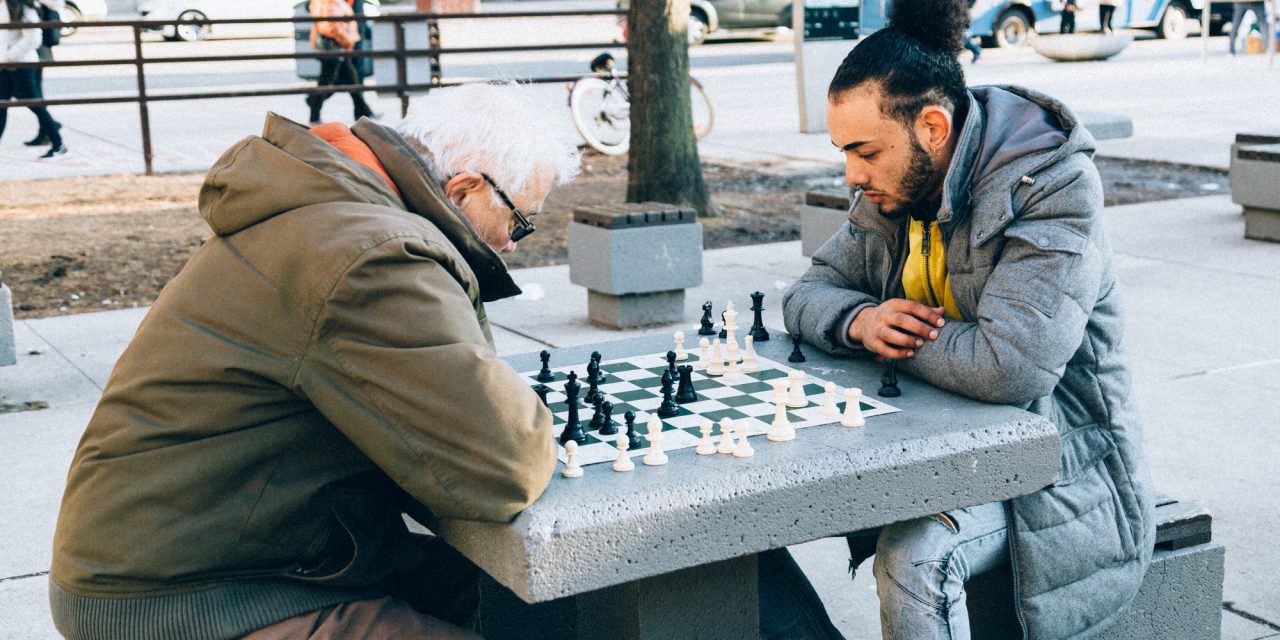Digital gaming may be more popular than ever. But if you want to protect your thinking skills as you get older, try taking up chess – or another type of non-digital game. That’s the conclusion of University of Edinburgh psychologists, who found people who regularly played board games and cards in their 70s scored better in cognitive tests than those who didn’t.
You don’t have to be a board game enthusiast all your life to reap the rewards either. The study – published in The Journals of Gerontology, Series B: Psychological Sciences and Social Sciences – found that people who played more during their 70s than when they were younger were more likely to maintain cognitive health as they became older.
The study followed more than a thousand people, testing them on their memory and problem solving skills as well as their thinking speed and general thinking ability. They were tested first at the age of 70, then again every three years until they were 79. The participants were all born in 1936 and are part of a study called the Lothian Birth Cohort. When they were 11 years old they also took part in the Scottish Mental Survey of 1947, which included an intelligence test. The researchers analysed the results of all the tests, including those taken in 1947, and took other relevant lifestyle factors into account. And they concluded people who played more non-digital games in later life had less of a decline in their thinking skills in their 70s, particularly memory function and thinking speed.
“These latest findings add to evidence that being more engaged in activities during the life course might be associated with better thinking skills in later life,” says Dr Drew Altschul of the university’s School of Philosophy, Psychology and Language Sciences. ““For those in their 70s or beyond, another message seems to be that playing non-digital games may be a positive behaviour in terms of reducing cognitive decline.”
The Lothian Birth Cohort study has one of the longest follow-up times in the world, and researchers have been working with the data since 1999 to assess how thinking power changes over a human lifetime. This latest study was supported by Age UK as well as the Medical Research Council.
“Even though some people’s thinking skills can decline as we get older, this research is further evidence that it doesn’t have to be inevitable,” says the charity’s director, Caroline Abrahams.
“The connection between playing board games and other non-digital games later in life and sharper thinking and memory skills adds to what we know about steps we can take to protect our cognitive health, including not drinking excess alcohol, being active and eating a healthy diet.”
Can’t play chess and don’t know how to start learning? Get to grips with the basics on lichess.org – but don’t forget to progress to a real-life chess board when you’re ready.





